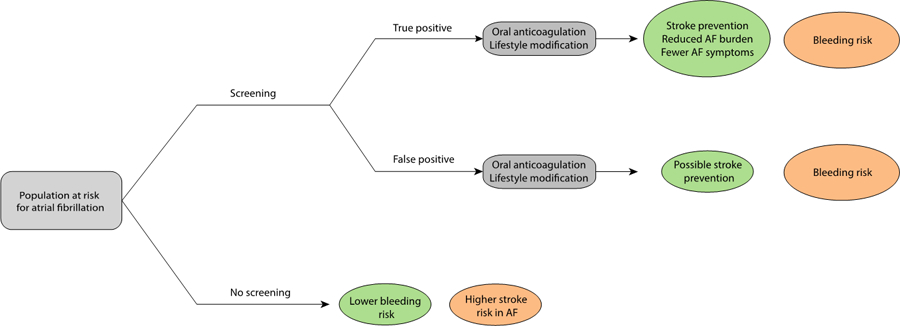Figure 1.

Rationale, risks, and benefits of atrial fibrillation screening.
The rationale for atrial fibrillation screening is depicted, as well as the relevant benefits (green) and risks (orange) expected with each approach. Individuals with undiagnosed incident AF are at risk for developing cardioembolic stroke prior to initiation of risk-based anticoagulation. Screening may lead to earlier diagnosis of AF, initiation of risk-based anticoagulation to prevent strokes, and an opportunity to institute risk factor modification strategies (e.g., weight loss, alcohol cessation, blood pressure control, sleep apnea management) to reduce AF symptoms and burden.14,15,62,63 For true positives (individuals with AF correctly identified as having AF using screening), the benefits may outweigh the risk of bleeding conferred by anticoagulation. For false positives (individuals without AF incorrectly identified as having AF using screening), the risk of bleeding likely outweighs any potential benefit of anticoagulation on non-AF related stroke. Without screening, fewer cases of otherwise undiagnosed AF will be identified, leading to lower overall bleeding risk from a lower rate of anticoagulation, but also more strokes resulting from unrecognized AF.
